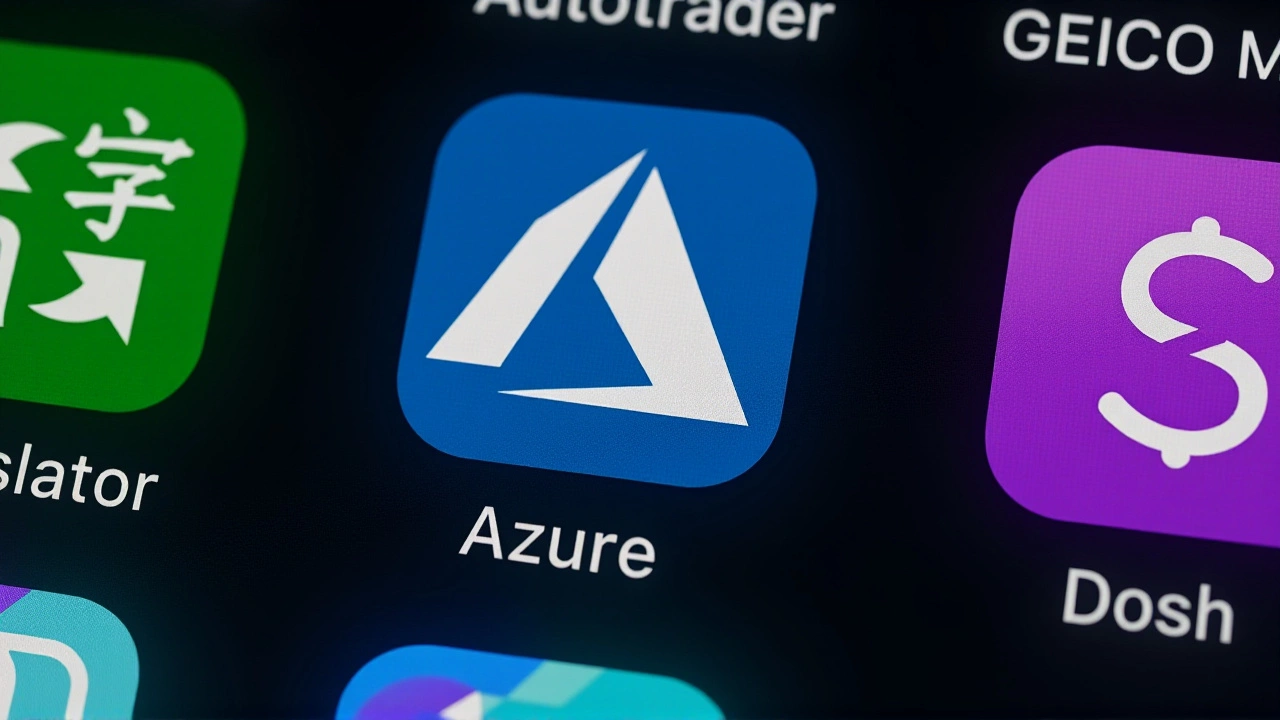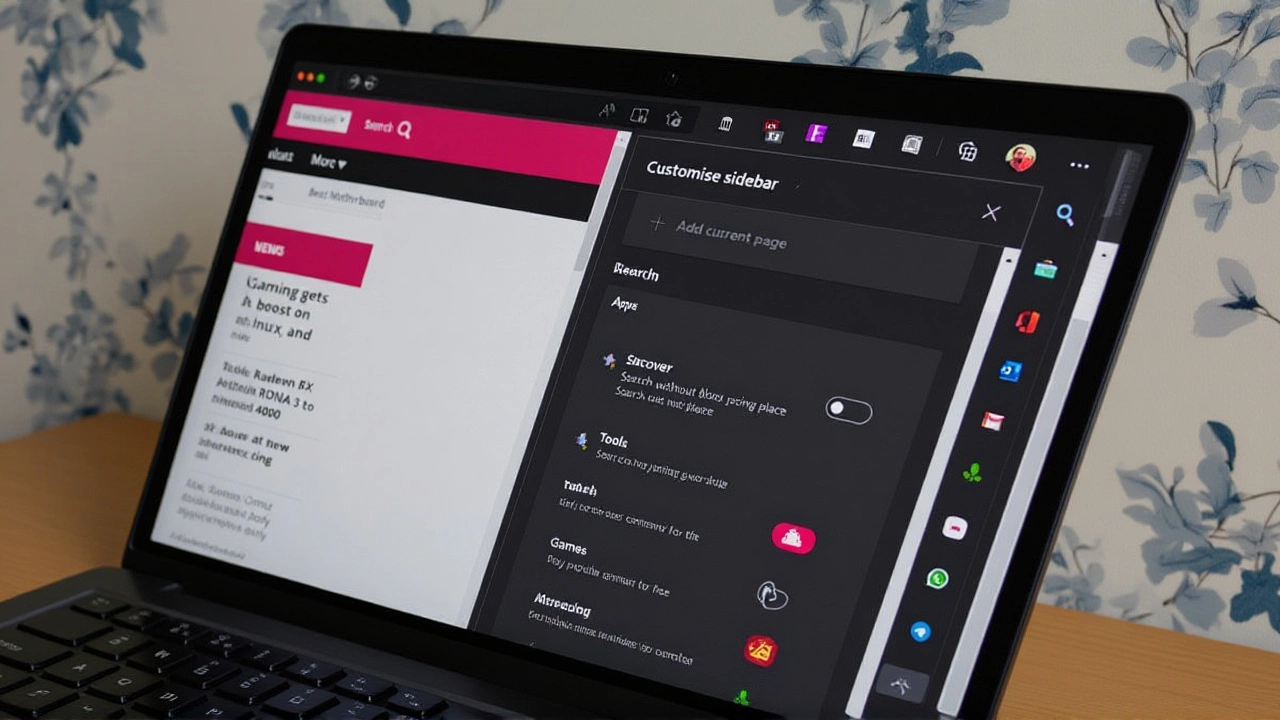Microsoft Unveils Six AI Agents for Azure Copilot in Gated Preview at Ignite 2025
 Nov, 21 2025
Nov, 21 2025
At Microsoft Ignite 2025 in mid-November 2025, Microsoft didn’t just update its cloud tools—it rewrote the playbook for how enterprises manage infrastructure. Six new Azure Copilot agents, quietly slipping into gated preview, are now embedded directly into the Azure portal, PowerShell, and CLI, turning chat into a full-screen command center powered by GPT-5 reasoning and ARM-driven automation. This isn’t another chatbot feature. It’s a fundamental shift: AI agents now act as autonomous, policy-bound assistants that don’t just answer questions—they make decisions, propose migrations, and fix outages—with your permission.
The Six Agents Changing Cloud Operations
The six specialized agents—migration, deployment, optimization, observability, resiliency, and troubleshooting—aren’t just tools. They’re teammates. Each one lives inside Azure’s existing infrastructure, learning from your environment, your policies, and your team’s past decisions. Microsoft’s official Azure blog, published November 18, 2025, made it clear: these agents don’t override RBAC or Azure Policy. They enforce them. Need to migrate a legacy app? The migration agent doesn’t just suggest options—it maps dependencies, estimates downtime, and flags compliance risks before you even click "proceed."
And here’s the twist: they don’t act alone. They’re part of a stack Microsoft calls the "Foundry ecosystem," built on Microsoft Foundry and the Foundry Agent Service. As developer pwd9000 noted on Dev.to on November 19, 2025, this creates a "GitHub Copilot ↔ Azure Copilot ↔ ARM loop"—where code changes in GitHub trigger architecture suggestions in Azure, which then auto-deploy and monitor the results. It’s not automation. It’s orchestration.
Agent 365 and the Rise of the AI Fleet
But the real breakthrough? Microsoft Entra Agent ID. For the first time, organizations can discover, name, and track every AI agent—visible or shadow—running across their estate. Think of it as Active Directory for AI. A team in Toronto deploys an unofficial troubleshooting bot using Copilot Studio? Entra Agent ID finds it. Assigns it a unique identity. Logs its actions. Controls its permissions. No more rogue agents slipping through security audits.
That’s where Agent 365 comes in. Described by Bright Ideas Agency in a November 19 YouTube video as "our new agentic control plane," it’s the dashboard that lets IT teams see which agents are active, how often they’re used, and whether they’re speeding things up—or creating new risks. "It’s not about replacing humans," said one internal Microsoft engineer, speaking anonymously. "It’s about giving them superpowers—without letting them lose control."
The Power Apps Shift: From Chat to Command Center
Starting December 17, 2025, Power Apps customers in early release environments will get the unified Copilot Chat experience inside model-driven apps. This isn’t your grandfather’s Q&A bot. It’s a task engine. Need to update a customer record? Assign a follow-up? Pull real-time inventory data? The agent doesn’t just tell you how—it does it. And it logs everything: who requested it, what data it accessed, and whether it complied with your org’s data residency rules.
Microsoft’s MCP Server now powers this agent feed, giving makers granular control over what tasks surface to users. Performance metrics? Yes. Usage heatmaps? Yes. The ability to pause an agent mid-task if it starts acting weird? Also yes.

The Six-Step Modernization Roadmap
Microsoft didn’t just drop tools—they gave a roadmap. Their six-step process for cloud modernization is now the new standard:
- Assess & plan with Azure Copilot
- Refactor with GitHub Copilot + App Service Managed Instance
- Modernize data with SQL Server 2025, Azure HorizonDB, or Fabric
- Introduce agents with Foundry Agent Service
- Secure the pipeline with Defender + GitHub
- Operate agents with Foundry Control Plane + Azure Copilot
Each step is designed to reduce manual toil. One early adopter, a Fortune 500 financial services firm, reported a 40% drop in deployment-related incidents and a 35% reduction in cloud spend within six weeks of pilot launch.
Why This Matters More Than You Think
This isn’t just about efficiency. It’s about survival. As AI agents proliferate, so do risks: unauthorized changes, data leaks, compliance violations. Microsoft’s answer? Governance baked into the fabric of the system. No more bolt-on security. No more reactive audits. Every agent respects your RBAC. Every action is logged. Every artifact—whether a config file, a migration plan, or a report—is stored in your chosen cloud storage, not Microsoft’s.
"The cloud is more than just a platform," Microsoft’s blog declared. "It’s the engine of transformation." And now, that engine has a brain—and a conscience. The real question isn’t whether your team should adopt these agents. It’s whether you can afford not to.
Frequently Asked Questions
How do Azure Copilot agents differ from traditional automation tools?
Unlike scripted automation, Azure Copilot agents use GPT-5 reasoning to interpret context, adapt to policy changes, and propose solutions in real time. They don’t just execute commands—they understand intent. For example, a troubleshooting agent might detect a pattern in logs, correlate it with recent deployments, and suggest a rollback—then wait for your confirmation before acting. This human-in-the-loop design prevents runaway automation while reducing manual triage.
Can these agents work with existing hybrid cloud environments?
Yes. Azure Copilot agents support hybrid deployments, including on-premises Windows Server VMs, Azure Arc-enabled resources, and multi-cloud setups via Azure Policy extensions. The agents respect data residency rules regardless of location, and Microsoft Foundry’s runtime guarantees ensure consistent behavior across environments. Organizations with legacy infrastructure can begin with the migration agent to identify candidates for modernization without full cloud migration.
What happens if an agent makes a mistake?
Every action requires explicit confirmation before execution. Logs are immutable and tied to user identity via Entra Agent ID. If an agent proposes a risky change—like deleting a production database—it flags the risk, cites policy violations, and requires dual approval. Microsoft also provides a "rollback snapshot" feature that automatically saves the state before any agent-driven change, allowing administrators to revert in seconds.
How is data privacy handled with these agents?
Microsoft emphasizes "bring your own storage"—all chat history, generated artifacts, and logs are stored in your Azure subscription, not Microsoft’s. Data residency is enforced at the policy level, and agents never train on customer data. Even GPT-5 reasoning runs locally within Azure’s secure enclave where possible. Customers retain full control over encryption keys, audit trails, and retention policies.
When will these agents be available to all customers?
The six Azure Copilot agents remain in gated preview through early 2026, with broader availability expected by Q2 2026. Power Apps Copilot Chat will roll out to all customers in stages starting December 17, 2025, but full enterprise access requires enrollment in Microsoft’s Advanced Compliance Program. Organizations with Azure Enterprise Agreements can request early access via their Microsoft account manager.
Do I need new licenses to use Azure Copilot agents?
Access requires an Azure subscription with at least the "Enterprise E5" or "Microsoft 365 E5" license tier. The agents are included as part of the Azure AI Platform add-on, which is bundled with these plans. Smaller organizations can test limited functionality via the free Azure trial, but full governance features, including Entra Agent ID and Foundry Control Plane, are restricted to paid tiers.